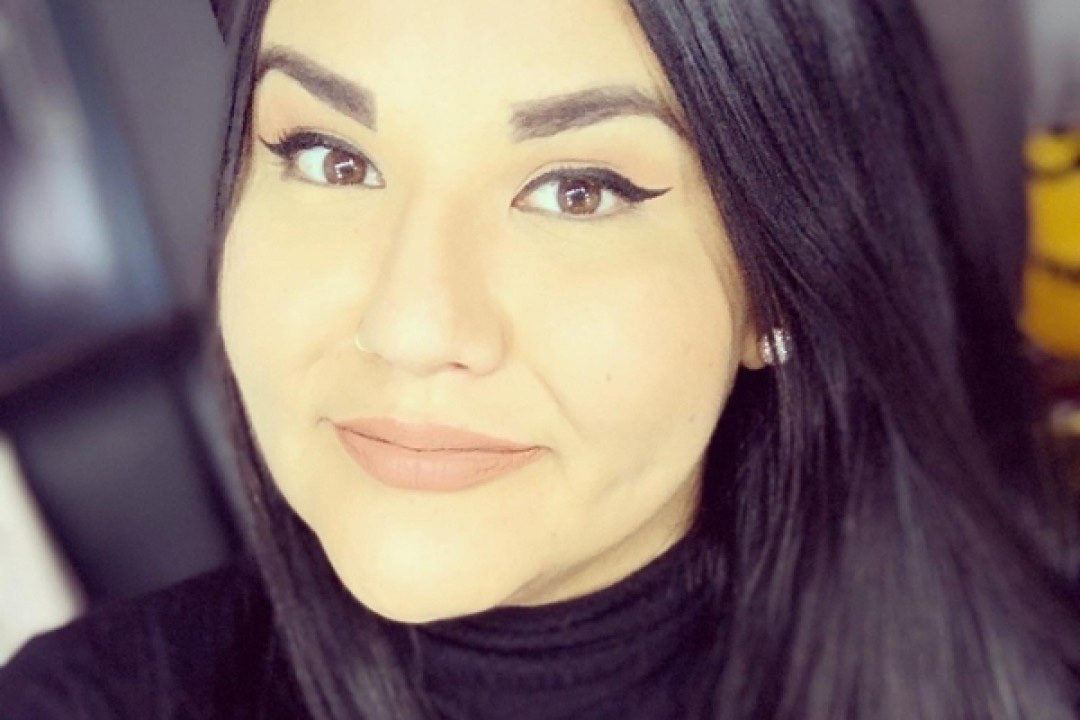
Re-envisioning child welfare
Jillian Senécal hopes her GENI research project will help bring traditional Indigenous family values to child welfare policy.
By Bev FastIn Saskatchewan, Indigenous children account for more than 86% of children in care. It’s a statistic Jillian Senécal, Johnson Shoyama Graduate School of Public Policy Master of Governance and Entrepreneurship in Northern and Indigenous Areas (GENI) student at the University of Saskatchewan, is all too familiar with—one she hopes to help change.
A member of the Opaskwayak Cree Nation, Jillian grew up in Cumberland House but today she lives in Turnor Lake with her husband Jérémie and daughters Addison and Ellie. She’s taking the GENI program part-time while working with Meadow Lake Tribal Council as a school social worker at Birch Narrows Dene Community School.
Starting on the Front Line of Care
Jillian has been a front-line worker in child welfare since graduating from First Nations University of Canada with an undergraduate degree in Indigenous Social Work and from the University of Saskatchewan with a Bachelor of Arts. She’s worked in home care, sport, culture and recreation, child welfare, child/youth mental health and social work. She points to two catalysts for her interest in the JSGS GENI program.
“I became interested in public policy through my dad,” Jillian says. “He’s a graduate of the Master of Northern Governance and Development program at JSGS, and when he was going through the program, we would talk about his classes and experiences. At the time, I was a child protection worker with the provincial Ministry of Social Services’ Child and Family Program. I saw a bridge between what he was learning and what I was seeing in my work.”
Jillian’s day-to-day work experience was the second catalyst. She was working with predominantly First Nations and Métis families, yet the approach to child welfare was Euro-centric.
“I saw flaws in the system, and that the effects of these problems were most negatively felt by the families I was expected to help,” she says. “I saw first-hand how systemic racism in governmental institutions still exists, because I was seeing it unfold in my work. That’s when I realized I wanted to become involved in policy development. I knew I couldn’t make big changes within child welfare being a front-line worker.”
In her first two years of the GENI program, Jillian attended field school in northern Saskatchewan and took online classes on policy, governance and economic development. The focus of her third year has been collaborating with Birch Narrows Dene Nation on her applied research project, a literature review on culturally restorative practices in child welfare.
Jillian and her supervisor wanted to know, is there a correlation between lack of Indigenous culture and involvement in the child welfare system and the number of Indigenous children and families in care? Could connection to one’s own culture mitigate the risk of being involved in the child welfare system?
Opikināwāsowin
“I believe a resurgence in culturally inclusive, safe and restorative practices is needed in child welfare,” Jillian says. “A lot of the current models, policies and legislation in child welfare are still built on a Euro-centric foundation with little to no Indigenous inclusion. I whole heartedly believe that the current state of child welfare needs to be dismantled, decolonized and redeveloped with Indigenous people making up a majority of the decision-making authority.”
At the heart of Jillian’s research is the concept of Opikināwāsowin, raising our children well (Cree, Swampy, N dialect). “Opikināwāsowin is an Indigenous kinship value of traditional child rearing where children are raised from a place of love and respect. Children are taught language, ceremonies, oral history, gender roles, community and the interrelatedness of it all,” Jillian says.
In Indigenous culture, extended family plays a major role in child rearing; the community shares responsibility for raising children. Opikināwāsowin values were broken during the residential school era.
“People don’t always understand the connection between residential schools and so many Indigenous children in care, but it’s a direct link,” Jillian says. “Residential schools broke down Indigenous culture. That impacted how those children parented when they grew up, which led to the intergenerational trauma we see impacting families today. It perpetuates family involvement with child welfare system, which continues to be very Euro-centric.”
Impacting Future Policy
Jillian is hoping her research helps expand understanding of Opikināwāsowin and the role it plays when policy is being developed that impacts Indigenous people.
“I would love for my research to influence how policies concerning Indigenous children and families are made,” Jillian says. “I worked with a lot of good, like-minded people in the Ministry, but the policies and the way they were developed prevented us from bringing culture into the system. I think current policies and legislation need to be dismantled, decolonized and redeveloped with Indigenous voices and perspectives. I hope my research helps in this decolonization of child welfare.”
Jillian enrolled in the GENI program because she wanted to be at the decision-making table regarding child welfare policy. In her journey so far, the people she’s met and experiences she’s had have shaped her into a more confident, knowledgeable person, someone well-equipped to make changes for Indigenous people and communities.
Article re-posted on .
View original article.

